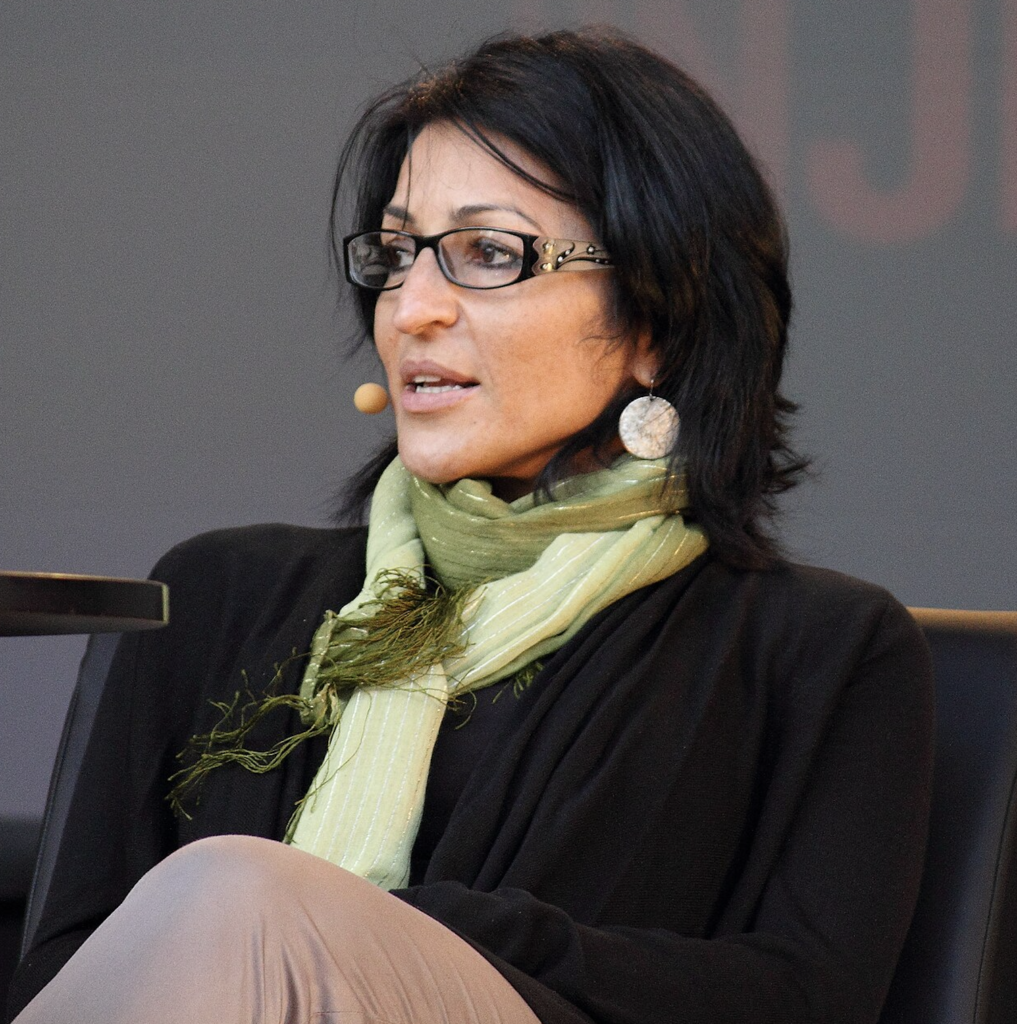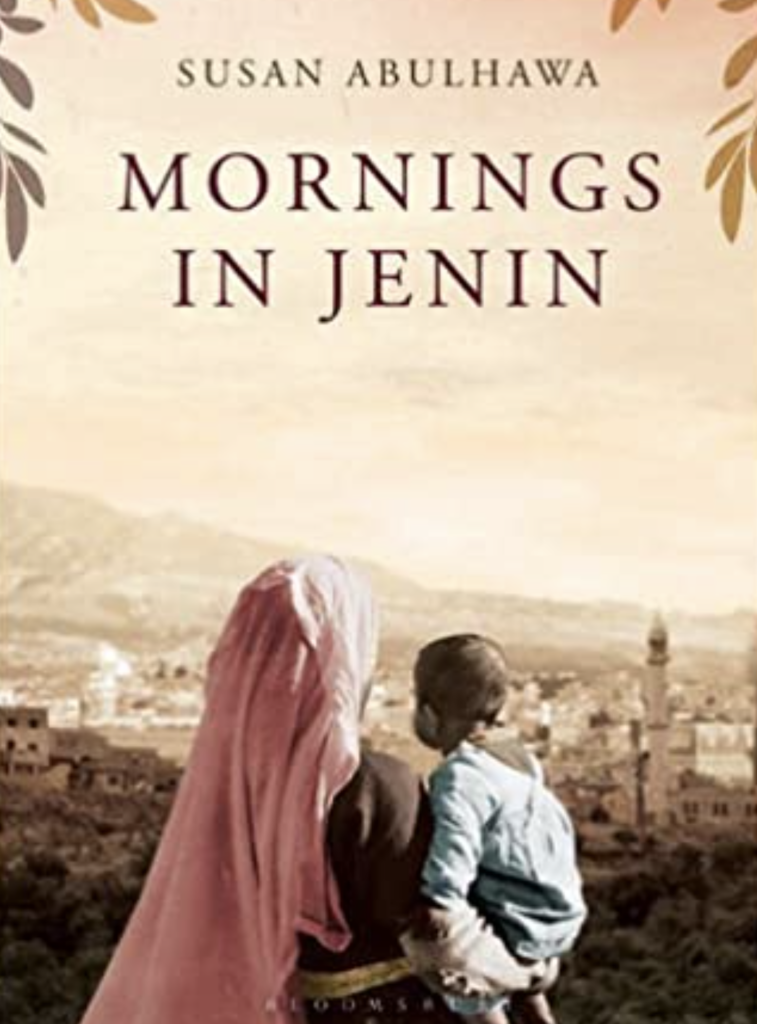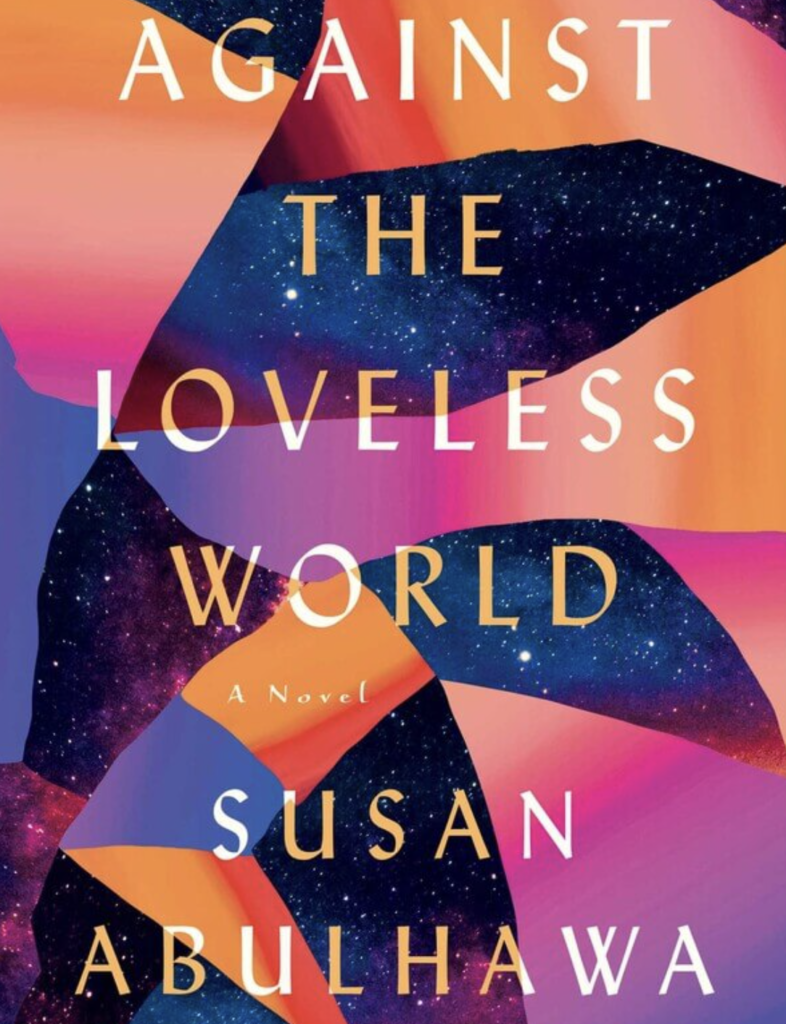Pathbreakers of Arab America— Susan Abulhawa

By: John Mason / Arab America Contributing Writer
This is the fiftieth of Arab America’s series on American pathbreakers of Arab descent. The series includes personalities from entertainment, business, sports, science, academia, journalism, and politics, among other areas. Our fiftieth pathbreaker is Susan Abulhawa, a Palestinian American writer and human rights activist. She is a prominent novelist who writes prolifically about Palestinians living under conditions Susan says are shaped by Israeli ‘apartheid’ policies and practices. During a recent trip to war-torn Gaza, Abulhawa expressed outrage against the killings of innocent Palestinians, causing immeasurable trauma.
Arab American Susan Abulhawa, writer and human rights advocate, captures the trauma of her Palestinian people in touching, yet trenchant terms
Abulhawa was born June 3, 1970, the daughter of Palestinian parents born in At-Tur, East Jerusalem. A refugee of the 1967 war, her father, according to a Wikipedia report, was expelled at gunpoint. Her mother was studying in Germany and only joined her husband in Jordan, from where they moved to Kuwait, where Susan was born. Her parents’ marriage did not last long, leading to their daughter’s turbulent childhood. She was transferred from Kuwait to the U.S., Jordan, and Palestine. Susan lived in the United States with an uncle until she was 5, then moved between relatives in Jordan and Kuwait for several years. Between the ages of 10-13, she lived in Dar el Tifl, an orphanage in Jerusalem.
Abulhawa ended up in Yardley, Pennsylvania, where she had a successful career in biomedical science, working as a researcher for a pharmaceutical company. While keeping her hand in the science writing sphere, she began writing novels that were a critical success. Her novels capture the lives of Palestinians who are caught in the vice of the Israel occupation. Her first novel, ‘Mornings in Jenin,’ published in 2010 by Bloomsbury Press, was translated into Arabic and at least two dozen other languages. It became an international bestseller.
‘Mornings in Jenin’ is a multi-generational story about a Palestinian family. Forcibly removed from the olive-farming village of Ein Hod by the newly formed state of Israel in 1948, the Abulhejo family is displaced to live in canvas tents in the Jenin refugee camp. The reader follows the Abulhejo family as it lives through a half-century of violent history.

As might be expected, Zionists did not receive the novel with open arms. French author and philosopher Bernard-Henri Lévy, for example, called ‘Mornings in Jenin’ “a concentration of anti-Israeli and anti-Jewish clichés masquerading as fiction.” Not fearful of intellectual stars, Abulhawa responded, “I suspect that Mr. Levy feels, as most Jewish supporters of Israel do, that he is more entitled to my grandfather’s farms than I am. After all, that is the foundation of Israel, isn’t it?”
Abulhawa’s more recent novel, ‘Against a Loveless World,’ according to the publication Mondoweiss, “is a powerful feminist contribution to Palestinian writing that tells us that the sexual liberation struggle, and the decolonizing of patriarchal power, are not separate from national liberation.” The revolutionary Palestinian hero is “a woman and a one-time sex worker whose revolutionary consciousness emerges not from the barrel of a gun but within an inferno of colonial sexism, patriarchy, homophobia, and male violence.” Susan’s novel explores post-Nakba Palestinian history as a continual struggle for women—and to a lesser extent Queer Palestinians—to take and make their place in revolutionary history.

As Abulhawa’s novels suggest, she is an out-and-out activist. She has been heavily involved in the campaign, Boycott, Divestment, and Sanctions (BDS), and as a speaker for Al Awda, the Right to Return Coalition. Susan has claimed that the BDS movement is “one of the most effective ways to promote Palestinian rights and achieve justice against Israel’s ongoing ethnic cleansing.” Susan is the founder of Playgrounds for Palestine, an NGO that advocates for Palestinian children by building playgrounds in Palestine and UN refugee camps in Lebanon. The first playground was erected in early 2002.
Abulhawa’s recent visit to Gaza underscores “immeasurable trauma” for Palestinians
The TV production ‘Democracy Now’ had a poignant interview with Susan on 3/11/2024, following her two-week visit to Gaza. She visited with the victims of the war wherever they were living, in blown-out buildings, tents, or on the beach. Abulhawa depicted scenes of abuse, humiliation, and torture at the hands of Israeli soldiers as people struggle to find basic necessities to survive. “The degradation is total,” she reported, “And on top of that, they’re bombed, day in and out.”
Abulhawa reported that the trauma of war-affected children and women in particular. She noted, “The trauma is immeasurable, frankly, not just for children, but for everybody. I spoke with a lot of women, in particular, who were recovering in a hospital or were there — or, you know, being with their children who were recovering. The stories they told me are just — are out of like a Hollywood horror film. I mean, there are — I have photos of the backs of men where Israeli soldiers carved pictures, smiley faces, Stars of David, etc., in their skin. These women narrated stories to me of, you know, Israeli soldiers laying them — laying hundreds of women on the ground and then taking their guns with the laser and laughing, and then wherever the laser landed, they shoot.”

Abulhawa reported, “The degradation is total, Amy. (‘Democracy Now’ moderator, Amy Goodman). And on top of that, they’re bombed, day in and out, even in Rafah. When I was there, there was not a single night that we didn’t hear bombs, and at least once was close enough that the building I was in shook, and we thought our building had been hit.”
Susan Abulhawa is an Arab American heroine. She tells the story of Nakba and its aftermath in poetic terms but also in words that are starkly real. Her pro-Palestinian activism is remarkable and productive—from playgrounds to BDS. We need to listen to Susan carefully. She reflects and represents perfectly Arab American and Palestinian values and interests.
Sources:
–“Susan Abulhawa,” Wikipedia, 2024
–“Susan Abulhawa,” All Palestine (success stories of Palestinian achievers from all over the world}, no date
–“Palestine and patriarchy — the dual awakenings of Susan Abulhawa’s new novel,” Mondoweiss, 8/24/2020
–“The Trauma Is Immeasurable”: Palestinian Writer Susan Abulhawa on Israeli Violence in Gaza,” Democracy Now, 3/11/2024
John Mason, Ph.D., focuses on Arab culture, society, and history and is the author of LEFT-HANDED IN AN ISLAMIC WORLD: An Anthropologist’s Journey into the Middle East, New Academia Publishing, 2017. He has taught at the University of Libya, Benghazi, Rennselaer Polytechnic Institute in New York, and the American University in Cairo; John served with the United Nations in Tripoli, Libya, and consulted extensively on socioeconomic and political development for USAID and the World Bank in 65 countries.
The views and opinions expressed in this article are those of the author and do not necessarily reflect the position of Arab America. The reproduction of this article is permissible with proper credit to Arab America and the author.
Check out our Blog here!








